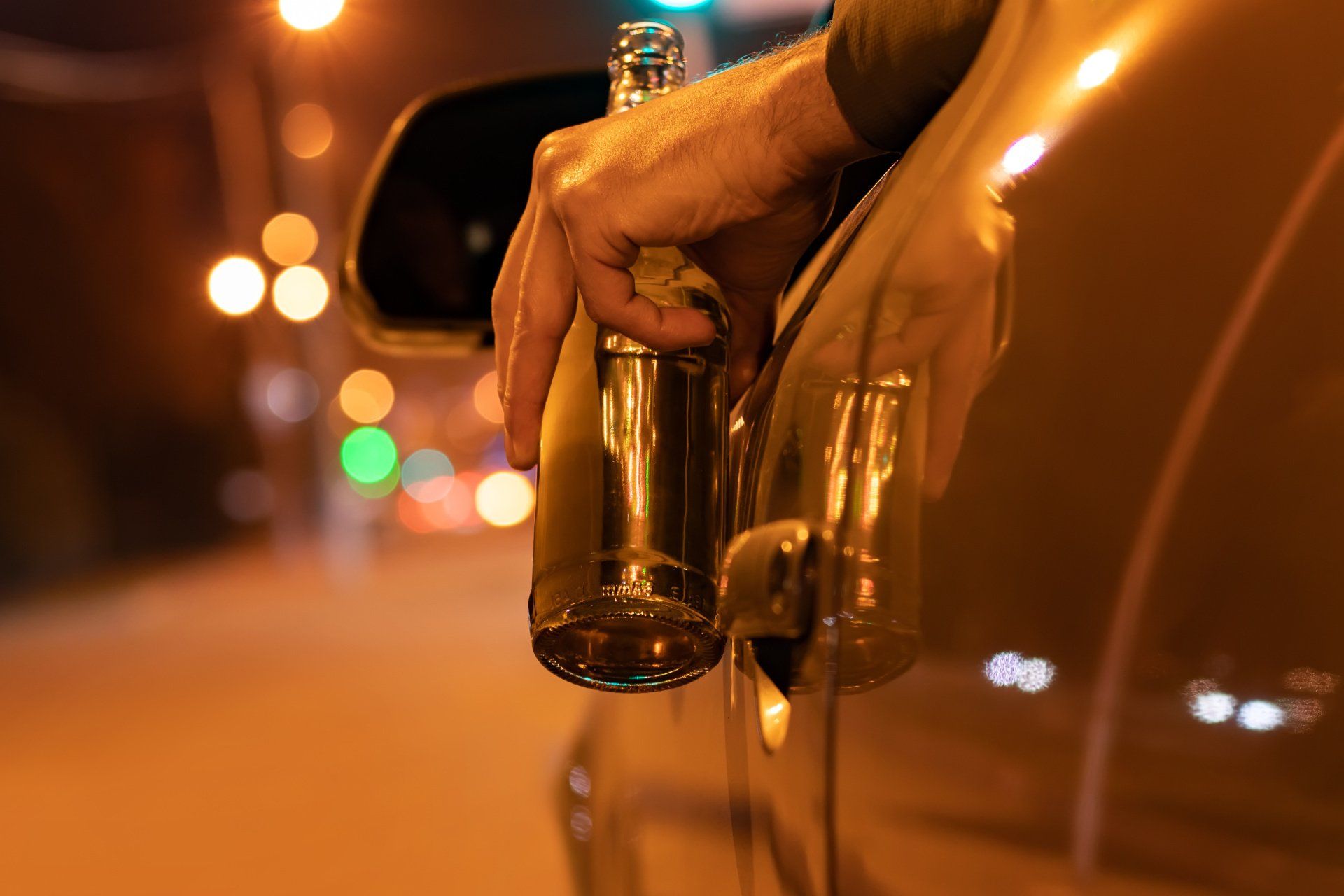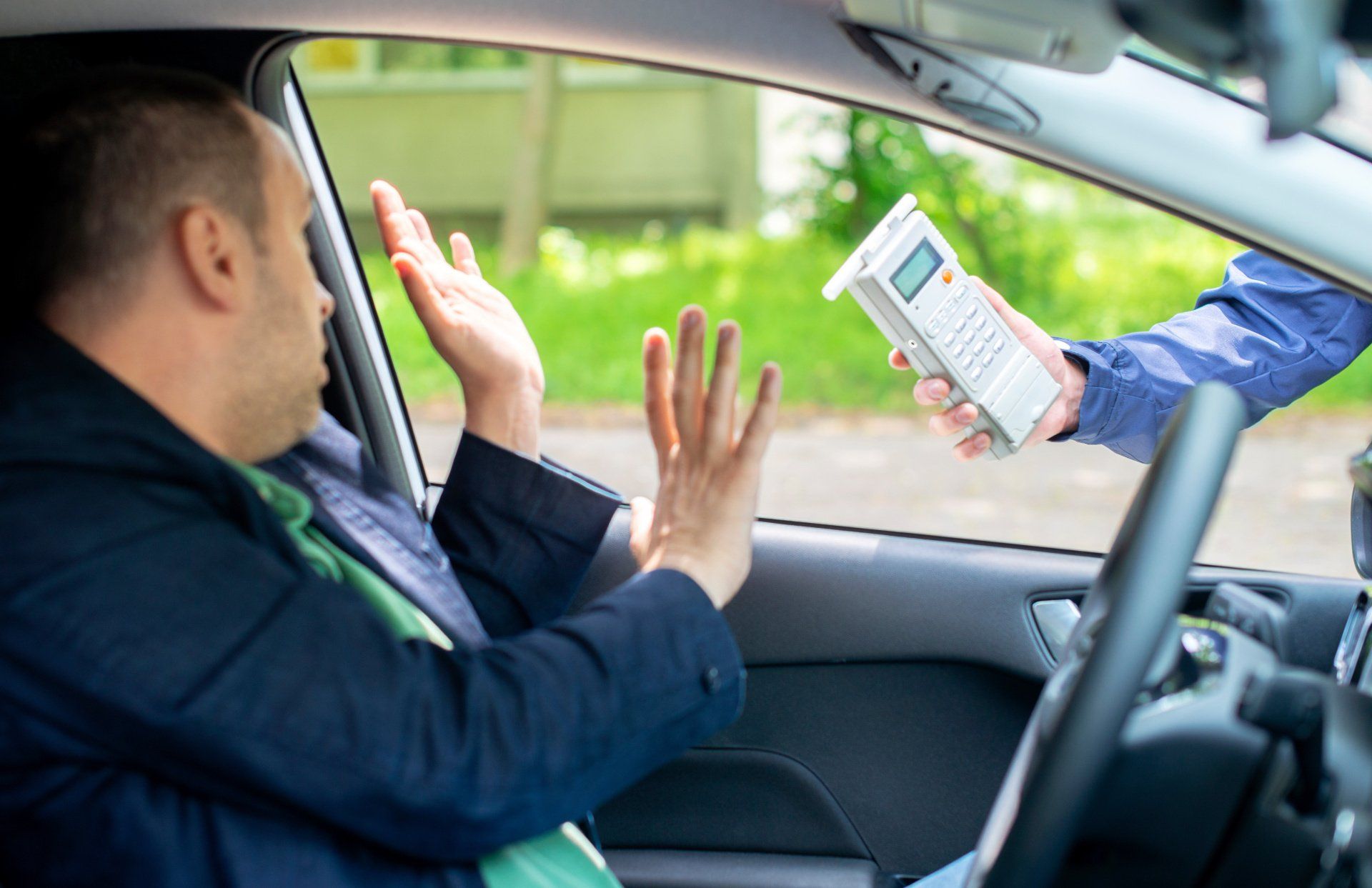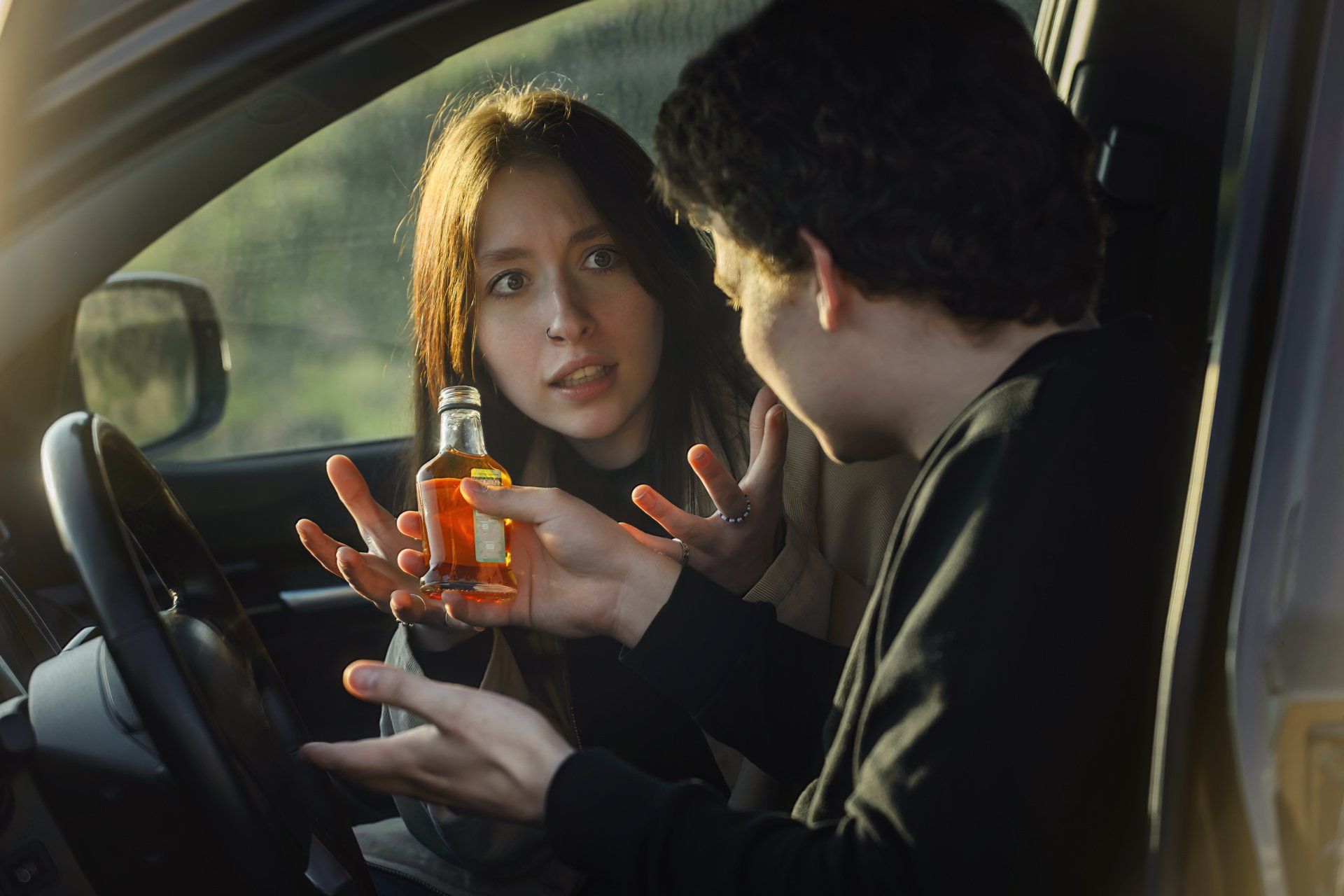Extreme DUI
ARIZONA CRIMINAL DEFENSE ATTORNEY FOR EXTREME DUI
Defense Attorney for Extreme DUI Charges in Arizona
An Extreme DUI (ARS 28-1382(A)(1)) means that a person has a BAC of between .150% to .199% within 2 hours of being pulled over by an officer. For your first offense extreme DUI, the minimum mandatory penalty is 30 days in jail, fines and fees in excess of $2,500, a license suspension of 90 days, one year of an Ignition Interlock Device with no eligibility to get early release, and an alcohol screening/follow up counseling. There are other costs such as insurance rates drastically increase and so on.
If you are charged with a second Extreme DUI within 7 years, the penalties you face increase even more. The minimum mandatory penalty is 120 days in jail, approximately $3,700 in fines, fees, jail costs, your license is revoked for 1 year, you must install an Interlock Device for 18 months after your revocation, 30 hours of community service, and an alcohol screening/follow up counseling.
Extreme DUI In Arizona
In Arizona, the penalties for a DUI are higher when your BAC exceeds certain thresholds. Arizona has per se DUI laws under which you can be convicted of a DUI regardless of your impairment level.
The state's threshold for a regular per se DUI of 0.08% for adult drivers other than commercial drivers is found in ARS 28-1381. Separate per se thresholds are included in ARS 28-1382 for charges of extreme DUIs and super-extreme DUIs. These two offenses can result in much more severe penalties even for a first DUI conviction.
If you are facing extreme or super-extreme DUI charges in Arizona under ARS 28-1382, you should retain an experienced extreme DUI lawyer at The Law Office of Michael Alarid as soon as possible.
Super Extreme DUI - ARS 28-1382 (A)(2)
A super extreme DUI in the state of Arizona is charged if you have .20% or higher BAC within 2 hours of being pulled over by police. The minimum mandatory penalty for consequences for this particular type of DUI are punishable with a minimum of 45 days in jail, fines and fees in excess of $3,000, a license suspension of 90 days, 18 months of an Ignition Interlock Device with no eligibility to get early release, and an alcohol screening/follow up counseling. There are other costs such as insurance rates drastically increase and so on.
If you are charged with a Second Super Extreme DUI within 7 years, the penalties you face increase even more. The minimum mandatory penalty is 180 days in jail, (which is also the maximum possible for a class 1 misdemeanor), approximately $4,700 in fines, fees, and jail costs, your license is revoked for 1 year, you must install an Interlock Device for 2 years after your revocation, 30 hours of community service, and an alcohol screening/follow up counseling.
What Is the Difference Between Extreme DUI and Super Extreme DUI?
Under ARS 28-1382(A)(1), you can be charged with an extreme DUI if your blood alcohol content tests between 0.15% and 0.199% within 2 hours of the time of the stop. If you are convicted of an extreme DUI, you will face more severe penalties than you would if you were convicted of a regular DUI. These penalties will also be even more severe for a second extreme DUI conviction.
If your blood alcohol content tests at 0.20% or higher within 2 hours of the time of the stop, you can be charged with a super-extreme DUI under ARS 28-1382(A)(2). This offense is the most severe type of misdemeanor DUI offense in Arizona and carries very harsh penalties.
The blood alcohol content on the blood or breath test must be taken within two hours of when you drove or were in actual physical control of your vehicle. You must have consumed alcohol either before you drove or were in actual physical control or while you were driving.
If you are charged with a super extreme DUI, you will also be charged with an extreme DUI, a per se DUI of driving with a BAC of 0.08% or more, and an impairment DUI under ARS 28-1381(A)(1) and (A)(2).
What are the Penalties for an Extreme DUI in Arizona?
If you are convicted of an extreme DUI AZ as a first offense, you will not receive separate sentences for the lesser-included general impairment and per se DUI offenses under ARS 28-1381. A first extreme DUI conviction can carry the following penalties:
- Mandatory minimum jail sentence of 30 days up to six months
- Probation for up to five years
- Fines and assessments of at least $2,500 plus additional costs
- Alcohol and drug assessment and mandatory classes
- Mandatory suspension of your driver's license for 90 days
- Ignition interlock device installation for at least 12 months
- Traffic survival school
- Possible SR-22 insurance for up to three years
For a second extreme DUI conviction within seven years, the penalties will be more severe than they are for an extreme DUI first offense. For a second conviction, you will face the following penalties:
- Mandatory minimum jail sentence of 120 days up to six months
- Revocation of your driver's license for 12 months
- Fines and assessments of at least $3,500 plus other costs
- Installation of an ignition interlock device for 12 months after the 1-year license revocation
- Drug and alcohol assessment and compliance with treatment recommendations
- Probation for up to five years
- 30+ hours of community service
- SR-22 insurance for up to three years
Penalties for a Super Extreme DUI Conviction
If you are convicted of a super-extreme DUI offense as a first offense, you will face the following penalties:
- Minimum mandatory jail sentence of 45 days up to six months
- Probation for up to five years
- Ignition interlock device installation for 18 months
- Drug and alcohol assessment and compliance with the recommended treatment
- Possible community service
- Traffic survival school
- Possible SR-22 insurance for up to three years
- Fines and assessments totaling more than $3,000 plus additional costs
If home detention is available to you, you can serve 20% of your sentence in jail and 80% on home detention. However, if your attorney cannot secure an agreement to home detention or it is otherwise unavailable, you will have to serve at least 45 days in jail.
After your first two days in jail, you can apply to participate in the jail's work-release program. If you are approved, you will be allowed to leave the jail each day for a maximum of 12 hours six days per week to go to work and return each night after your shift is over.
If you are convicted of a super-extreme DUI offense and have had any previous DUI conviction within the last seven years, you will face the following penalties:
- Mandatory 180 days in jail
- Probation for up to five years
- Drug and alcohol assessment and compliance with the recommended treatment
- Fines and assessments totaling over $4,000 plus additional costs
- Revocation of your driver's license for 12 months
- Mandatory ignition interlock installation for two years after the 1-year license revocation period
- Traffic survival school
- 30+ hours of community service
- Possible SR-22 insurance for up to 3 years
If home detention is available, your attorney might negotiate with the prosecutor to allow you to spend 36 days in jail, followed by 144 days of home detention. This would involve wearing an ankle monitor or blowing into a breath testing device twice each day.
Home detention allows you to leave your home to go to work, medical appointments, and court appearances. However, if it is not available to you, you will have to serve 180 days in jail. If you do, you can apply for work release after you have served 48 hours in jail. Work release allows you to leave each day to go to work for a maximum of 12 hours, six days per week.
You can apply for a restricted license after you have served 45 days of your revocation period. This type of license allows you to drive to and from work, school, court appearances, and medical appointments. However, you will have to have an ignition interlock device installed in your car.
Defenses to Extreme or Super Extreme DUI Charges
While you might believe that it is impossible to defend against an extreme or super extreme DUI charge, several defenses might be available to you. Your attorney will carefully review the facts and evidence in your case to identify the best defensive approach to take.
Depending on the facts of your case, the following defenses might be available:
- No reasonable suspicion for the stop
- Breath testing errors
- Blood testing errors
- Improperly administered SFSTs
- No probable cause for an arrest
- Lack of actual physical control and no driving
- Statements made during custodial interrogation in the absence of a Miranda warning
Before an officer can stop your vehicle, he or she must have a reasonable suspicion that you have violated the law, including a traffic violation or another crime. If the officer pulled you over without reasonable suspicion at any location other than a DUI checkpoint, your attorney could challenge the stop.
If successful, all evidence that was gathered as a result of the stop would be thrown out, which would result in a dismissal of your charges.
Breath and blood test results are not infallible. Officers sometimes make mistakes when administering breathalyzer tests that can result in inaccurate results. For example, if you have certain medical conditions, you may produce a high reading even when you have not been drinking.
For blood tests, your blood sample must be drawn correctly and stored in test tubes that contain substances to prevent the fermentation of your blood. Problems with the vials or issues such as a phlebotomist using an alcohol wipe on the injection site can lead to false readings. The prosecutor must also establish the chain of custody for your blood sample from the time it was drawn until it reaches the forensic lab for testing.
If the custody of your sample cannot be accounted for somewhere along the way, your attorney might succeed at having your blood test results thrown out. Your lawyer might also look at the lab testing processes to see if any analytical mistakes were made by the analyst.
Your attorney may also examine any videos of the standardized field sobriety tests if you agreed to take them. Officers must administer these tests in very specific ways. If any errors were made, your lawyer might challenge the tests. Finally, if the officer did not have probable cause to arrest you, your attorney might be able to have any evidence that was subsequently gathered, including your breath or blood test results, thrown out.
Related Practice Areas
RECENT CASE RESULTS
GET A FREE CONSULTATION TODAY
Talk to an Extreme DUI Lawyer at the Law Office of Michael Alarid
If you have been charged with an extreme DUI first offense, a super extreme DUI, a second extreme DUI, or a second super extreme DUI, you should retain an experienced criminal defense attorney in Phoenix as soon as possible. Michael Alarid is board certified in DUI defense law and understands how to defend against these types of charges. Call us today to request a consultation at (602) 818-3110.




